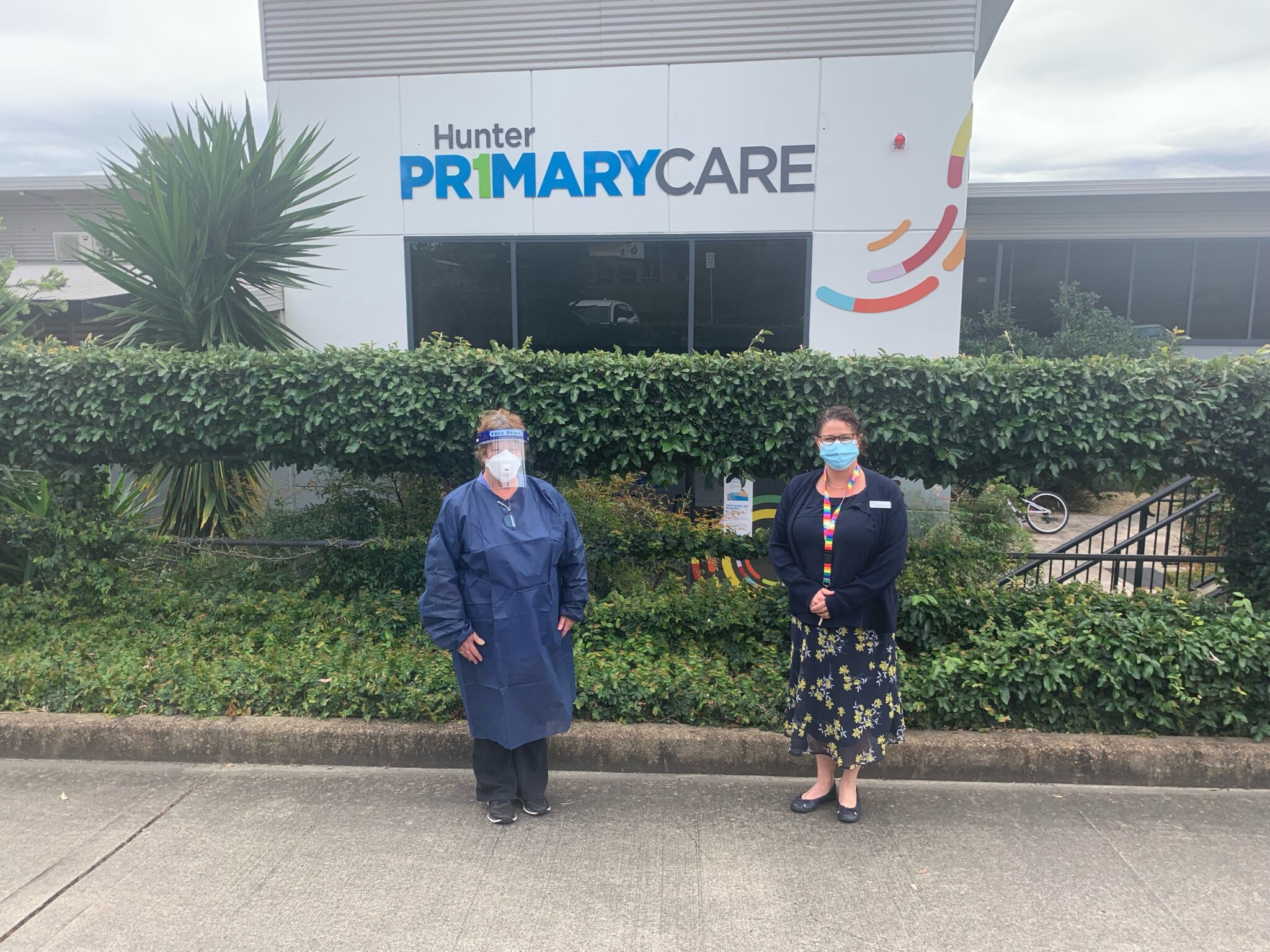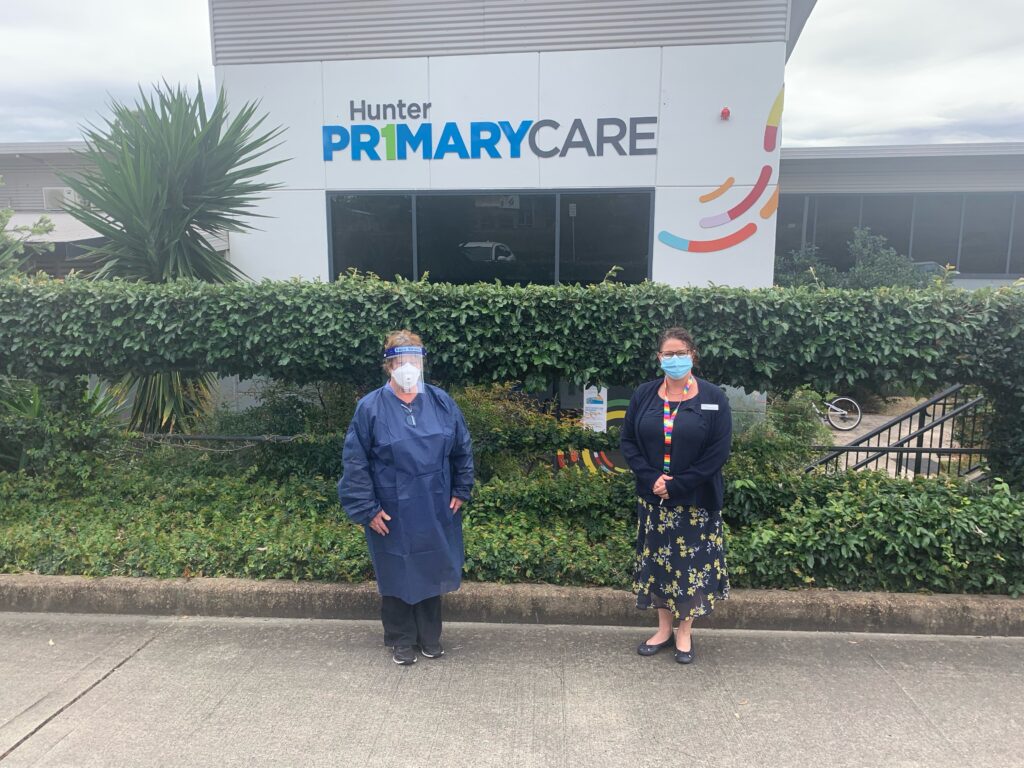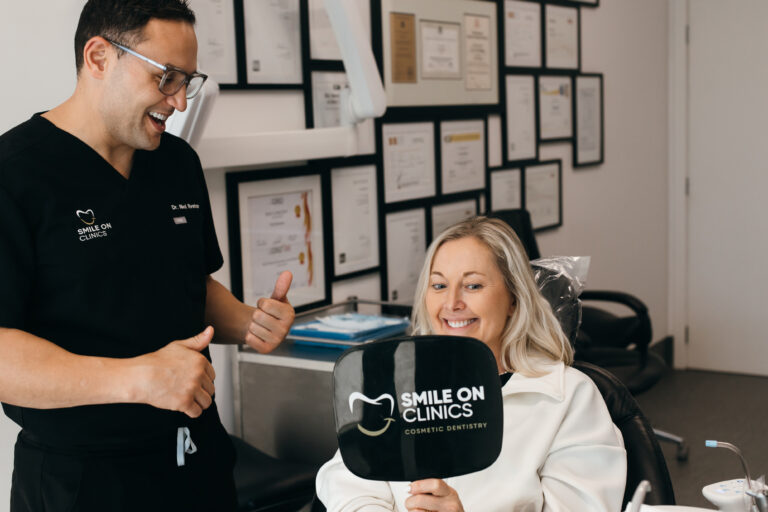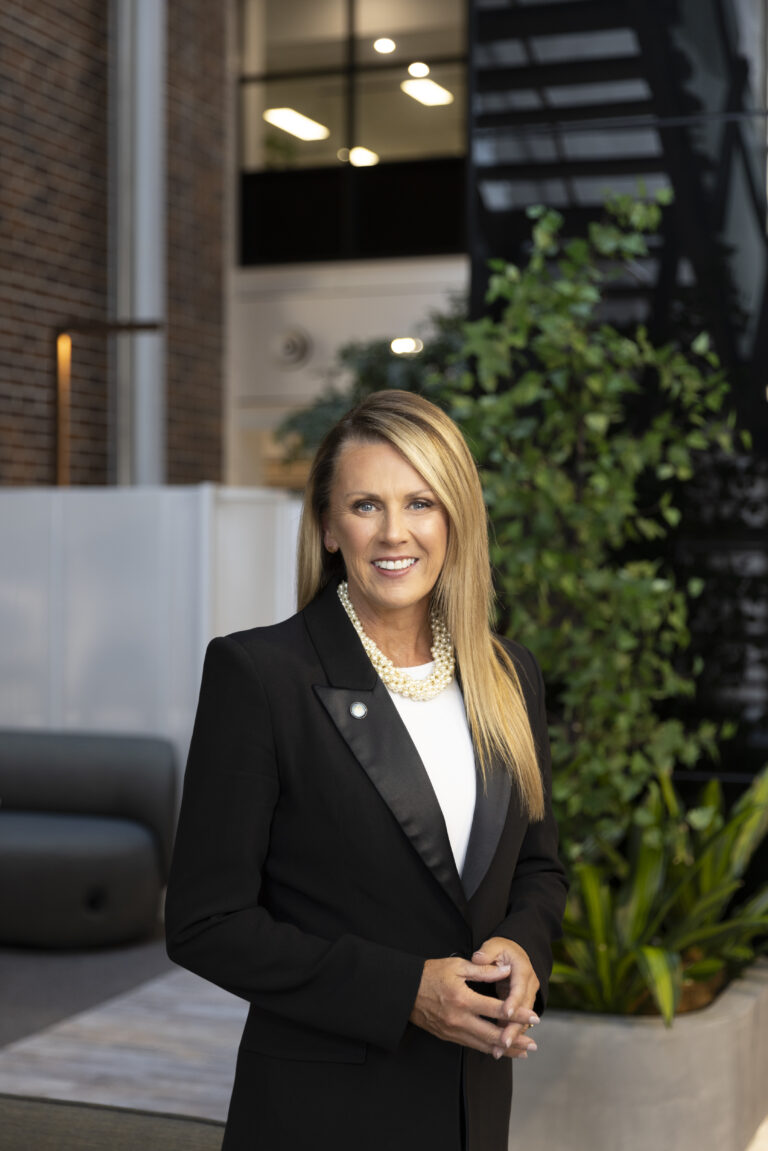Hunter Primary Care’s frontline healthcare workers received professional respirator fit testing last month for their N95 and P2 masks.
The specialised fit testing educated healthcare workers on the safest method for applying their respirators to give them the greatest possible protection against COVID-19.
Local organisations Hunter Primary Care and Humanomics joined forces to deliver the testing to over 200 frontline health care workers from Hunter Primary Care.
Humanomics Nurse, Ann Renshaw conducted the respirator fit testing at Hunter Primary Care, Warabrook.
Hunter Primary Care Executive, Keith Drinkwater said these tests help to ensure the best safety measures are in place to protect the community.
“Respirator fit testing helps us to provide another layer of protection for our employees and the general public, their health and safety is our highest priority,” Keith said.
The rollout of testing commenced with Hunter Primary Care’s GP Access team.
The GP Access team provide after-hours medical care and advice to people of Newcastle, Lake Macquarie, Maitland, and surrounding areas, and is open when regular GPs are closed.
This service is delivered face-to-face via clinics at Belmont Hospital, Calvary Mater Hospital, John Hunter Hospital, Maitland Hospital, and Westlake’s Community Health Centre Toronto, as well as over the phone via a call centre at Warabrook.
A respirator fit test checks the fit of any tight-fitting respirator against the user’s face, to determine if the respirator is providing an adequate seal.
This is important to make sure no harmful substances are getting inside the mask.
Humanomics General Manager, John Lynch said there is a lot of factors to consider when it comes to ensuring maximum protection and wear of safety masks.
“There are several factors that can impact on the effectiveness of the mask seal including facial hair, face size and shape, deep facial scars, weight loss, and weight gain etc. With a vast variety of shapes, sizes, and styles of respirator masks available, there is no ‘one-size-fits-all’ solution,” John said.
“Humanomics conduct ‘quantitative’ fit tests using a porta count machine, this machine uses advanced technology to count the simulated salt particles in the air, and those that may be getting inside the mask.
“A pass/fail result and fit factor is then provided, the whole process takes about 10 minutes,” John concluded.
IMAGE | Ann Renshaw from Humanomics and Simone Charlton from GP Access (left-right).







